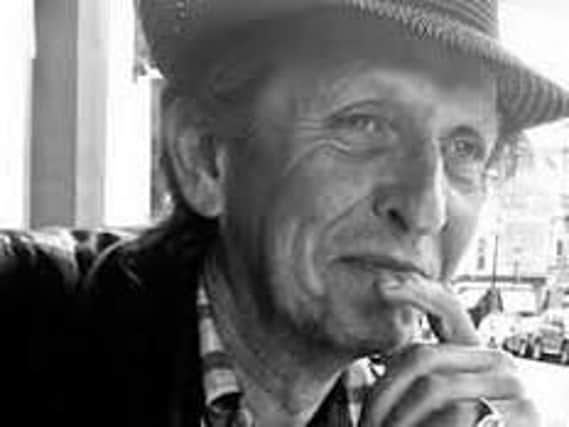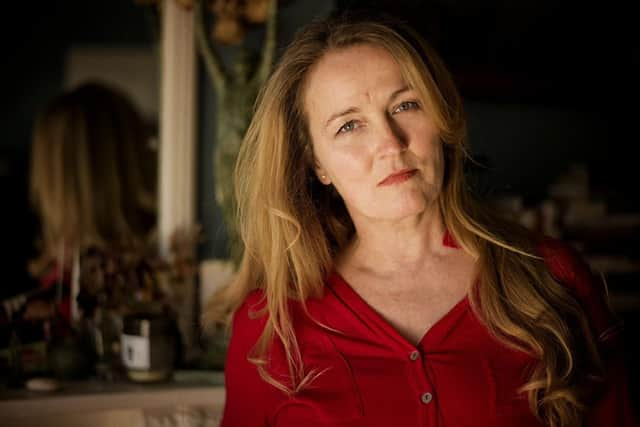Troubled life of Wigan musician laid bare in new book


Author and former journalist Louisa Young has penned You Left Early, her account of her relationship with musician Robert Lockhart.
Other news: Dancers settle into new Wigan home
The book traces their stop-start friendship and love affairs from when they first meet aged 17 on a staircase at Oxford University to when they finally got together in her forties on the grounds that he seek help with his drinking and their years as a couple.


Advertisement
Hide AdAdvertisement
Hide AdHowever, the book is also about Lockhart’s alcoholism, which affected him for years until he finally battled towards sobriety, and the cancer which ultimately came from drink.
A hugely-talented pianist, the former Wigan Grammar School pupil went to Oxford and then appeared on concert platforms before abruptly giving up life as a performer to become a composer.
He racked up a string of brilliant scores for TV, cinema and theatre but died, aged just 52, in 2012 after ordering a roast beef lunch in a gastropub when he was only supposed to be eating soft food.
Louisa, who wrote for national publications before going on to great acclaim as a novelist, says it was educating the public about alcohol addiction that spurred her to pen the book and go over the beautiful and painful memories of Robert alike.
Advertisement
Hide AdAdvertisement
Hide AdShe said: “There are a million and a half alcoholics in the UK, and alcoholism is a dreadful condition, and lots of people suffer massively because of it, not just alcoholics but their families and their partners.
“I wanted to tell what alcoholism is really like, from the point of view of someone who loves an alcoholic, and doesn’t know how to deal with it.
“Writing it was complicated. It took a long time; there was lots of emotion and a lot of hard graft to turn all that raw emotion into a finished work of art that people would want to read.
“Also, I’m not the only person who loved him, or who he loved. I did my absolute best to respect that.
Advertisement
Hide AdAdvertisement
Hide Ad“Most people understood what I was doing and why, but it is such a tender subject, and feelings run high. I could only tell my story, not anybody else’s.
“I hope I’ve portrayed him as his own lovely flawed individual human self.”
Louisa vividly recalls her first meeting with Lockhart in 1975, when he was already showing his precocious talent as a musician and she was amazed by the first northerner she had ever met.
She said: “We were both 17; he’d got into Oxford, to study music, and I’d only just done my GCSEs. I was very impressed!
Advertisement
Hide AdAdvertisement
Hide Ad“He was my best friend’s boyfriend’s new friend. He was very handsome and very funny, and he played Chopin, beautifully.
“We were friends, sometimes lovers, always close, from the early ‘80s till 2002. That’s when he finally realised that he had to stop drinking and get help, and so we got together as a proper couple, and worked together on that.
“I couldn’t be with him while he was still in denial about his drinking.”
Louisa speaks honestly about what living with Lockhart was like and why she only allowed them to be together when he was being treated for alcoholism, as well as giving a horrifying insight into the toll the condition can take.
Advertisement
Hide AdAdvertisement
Hide AdShe said: “Being in a relationship with Robert was brilliant when he was sober; terrible when he was drinking. I always loved him, but when he was drinking, he was impossible.
“When he started his recovery - it took him five tumultuous years - and got sober, he was so much happier, kinder, wiser.
“He was so grateful for getting a second chance at life, after the worst years during which he had wrecked this health, his career and his relationships.
“Even so, there was a lot of one-step-forward-two-steps-back: lapsing, lying, with me feeling completely lost and confused, but he really worked at it, and in the end - after a coma, a period of psychosis and alcoholic epilepsy - he got there.”
Advertisement
Hide AdAdvertisement
Hide AdThe book is crammed with references to Wigan, with Louisa telling how Robert would describe the Douglas running different colours with industrial dyes.
She also described how proud of his roots he remained throughout his life.
She said: “Wigan was his family, his friends, his cousins and his childhood.
“When he got sober he went back to live, dividing his time between Wigan and me in London, hopping on the train on his two sticks, with a tube of Uncle Joe’s Mint Balls for me.
Advertisement
Hide AdAdvertisement
Hide Ad“He was so happy to be able to be back there, to spend time with his beloved father and stepmother, who he’d been estranged from, to visit his mother’s grave, to go up on the moors.
“He thought Londoners like me were effete soft southern bourgeois idiots, and that Wigan rugby league was the finest achievement of western civilisation. He’d been working on a piece for Trinity Girls Brass Band when he was diagnosed with cancer.”
Writing about both alcoholism and cancer in the book has given Louisa the chance to reflect on society’s different attitudes to them.
She said: “There is help out there, both for alcoholics and for the people who love them, but feel ashamed to talk about it.
Advertisement
Hide AdAdvertisement
Hide Ad“I thought, I’ll throw up the windows with this book, let some light in, refuse to feel embarrassed and ashamed, despite how destructive and disgusting it can be.
“We used to feel shame about cancer but now people cheerfully and proudly raise money for cancer research, running marathons in animal onesies.
“I’d like to see that kind of change in our attitudes to addiction. Robert had both addiction and cancer, so I saw both sides of society’s attitudes there: when you have cancer you are a poor suffering victim; when you are an addict it’s your own stupid fault and you’ve only yourself to blame.
“But Robert’s addiction caused his cancer! As a result of which, he lost so much, including the ability to eat, or speak, or play the piano, which had been his life.
Advertisement
Hide AdAdvertisement
Hide Ad“They say alcoholism has three main contributing factors: a genetic predisposition to physical addiction, a psychological predisposition to self-medicating at times of emotional pain, and enough bad things happening in your life to provoke enough of the emotional pain to make you self-medicate enough to set off the genetic factor.
“That makes sense to me, and it certainly makes sense of Robert.”
You Left Early, by Louisa Young, is out now.